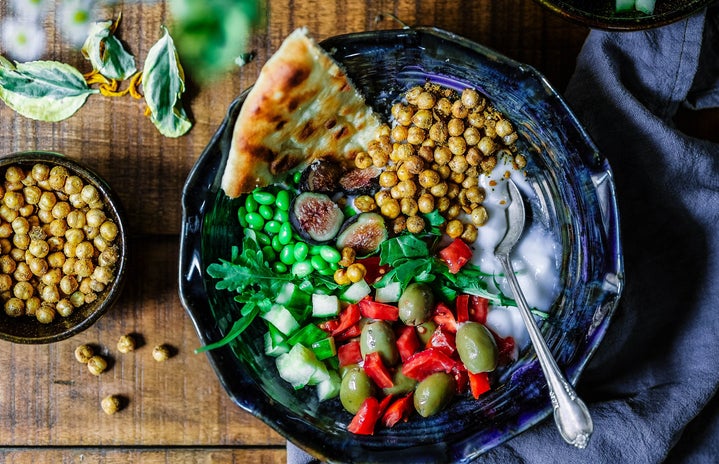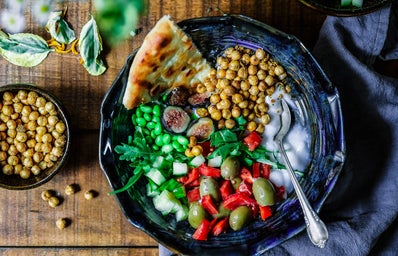Mid-way through my sophomore year, I’ve reached a rut in cooking for myself. I moved into my own apartment as opposed to the campus dorms this fall. I must admit, it’s been a struggle to find new things to eat all of the time.
I know I need variation in my diet, and I know I need to eat protein. Still, I find myself hating all the options I’ve made before. In an effort to avoid eating chicken for the fourth week in a row, I made a meal incorporating chickpeas. I’d heard chickpeas had a substantial amount of protein in them and was curious to learn more about plant-based proteins. Upon further research, even more benefits emerged. I was hooked.
Incorporating plant-based protein into your diet helps solve the issue of repetition in your meals, but there’s also a range of other benefits to these meat alternatives as well.
- There’s more food available!
My stem girlies would know that there’s more biomass at lower trophic levels, as stated by the University of Michigan. For those who have not talked about this in science classes, a trophic level represents where an organism is in the food chain. An animal is “low” in the food chain, or at a low trophic level, the less organisms it consumes.
For example, grass is a producer — they make their own food — and a bunny eats the grass. In this situation, grass is at a lower trophic level. If there was less grass than there were bunnies or the same amount of grass as the bunnies, then the bunnies would start to starve. That is why there are nearly always more plants available for consumption than animals.
The main idea in this being a positive is that people are eating the grains and plants that farmers or companies would normally produce to raise and slaughter animals. A farmer could focus more on just crops if society ate more plant-based protein, and this would save on their resources. Additionally, we would be killing less animals.
The fact that there is more food available at lower trophic levels leads me into the next point, that is:
- Plant-based protein is cheaper than meat products.
Because there is more food available for plant options, plant-based proteins often tend to be cheaper than meat. Therefore, incorporating more plant-based protein into your diet can be cheaper than using meat-based protein.
This line of thinking is not necessarily intuitive just by shopping at the store. I think vegetables tend to seem more expensive than they are, so let me give an example.
According to the USDA’s National Retail Report, the price of chicken breasts — my protein of choice — can range anywhere from $3.49 to $7.49 per pound as of February 10, 2023. Personally, the store I shop at usually sells chicken breasts for a value of $3.99 per pound.
However, I can buy 15.5 oz of chickpeas for $1.09. For comparison, there are 16 ounces in one pound. Therefore, nearly a pound of chickpeas is around three dollars cheaper than a pound of chicken.
- There are health benefits to incorporating more plants into your diet!
Many people have switched to a vegetarian or vegan lifestyle for the health benefits. WebMD states there is a correlation between diets centering around plant-based proteins and health benefits such as a lower risk of heart disease, early death, and stroke. This is why some people advocate for cutting meat out entirely!
However, there are some health concerns with cutting meat or animal products out of your diet completely as well. As such, it should only be done with proper research and dedication to meal prep.
For those who aren’t ready to make much of a commitment, try testing out a plant-based meal in the upcoming months. Be proud knowing you made a more sustainable choice, and while decreasing your weekly grocery bill too.


